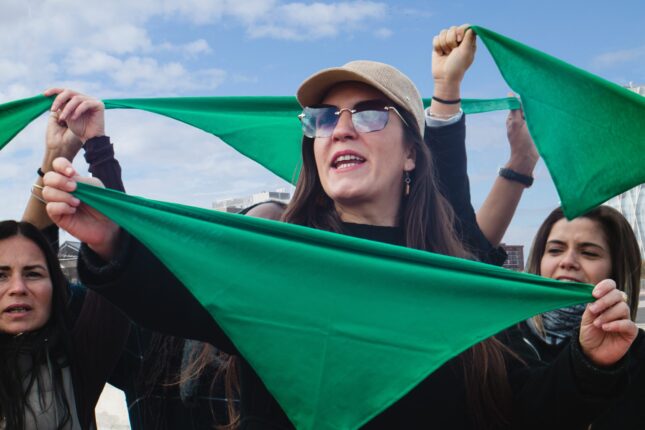-
By Women, For Women: Global Advocacy for Women’s Rights and Health
August 14, 2024 By Rebecca Avigad
Gambian lawmakers voted on July 15, 2024, to maintain the nine-year old ban on female genital cutting (FGC). Also known as female genital mutilation (FGM), female genital cutting is defined by the World Health Organization as “all procedures that involve partial or total removal of the external female genitalia, or other injury to the female genital organs for non-medical reasons.” The negative health outcomes of FGC can include severe pain, infections, sexual health problems, and obstetric complications.
Gambia has long had a history of permitting female genital cutting. A Gambia Demographic and Health Survey in 2020 found that up to 73% of Gambian women between the ages of 15 and 49 have undergone FGC. While the practice was prohibited in 2015 under former president Yahya Jammeh, lawmakers voted in March this year to advance a measure that would revoke the ban. This legislation would make Gambia the first nation to reduce protections against female genital cutting.
The lawmakers’ July reversal of that measure followed a hard-fought effort by Gambian women. Many women’s rights advocates had campaigned for months to lobby politicians and engage the public about the impacts of FGC ahead of the vote. These efforts built upon decades of work in which activists forged connections with traditional leaders, former cutters, and influential figures to push back against the deeply ingrained practice.
Women’s Leadership Matters
Gambia is just the latest chapter in a long history of global activism led by women. Another prominent example was Latin America’s “Green Wave” movement in Latin America, which led to vast transformations in both laws and public perceptions around sexual and reproductive health and rights (SRHR) in the region, including on the question of abortion.
The movement originated in Argentina in 2015 under the #NiUnaMenos slogan (translating to Not One Less) in response to high rates of femicide and gender-based violence in the country. It spread across the region, with other women-led demonstrations in Brazil, Bolivia, Chile, Mexico, Peru, Paraguay, Uruguay, and El Salvador. These protests later evolved into the “Green Wave” to target reproductive justice issues. Notable reproductive health advances included the 2020 decriminalization of abortion up to 14 weeks in Argentina; Colombia’s 2022 Constitutional Court ruling to decriminalize abortion up to 24 weeks; and the 2023 court ruling to decriminalize abortion nationwide at Mexico’s federal level.
Women-led advocacy can be found in India as well, where women’s peer groups are working in rural Indian states to end child marriage, calling for participants at community meetings to pledge that they won’t allow underage daughters to marry, and boycotting weddings with child brides.
While many obstacles remain, progress has accelerated over the last 15 years. Global movements have worked to prioritize the needs of women and girls and to ensure their health and safety. November 25 was named the International Day for the Elimination of Violence against Women in recognition of the day that the Mirabal sisters, three prominent Dominican activists, were assassinated in 1960. This day continues to call attention to the prevalence of gender-based violence around the world.
Despite their recent victory, Gambian activists will continue to fight against future campaigns seeking to overturn the ban, as well as push for stronger enforcement against FGC. Their work remains particularly important as other countries, such as Sierra Leone and Liberia, debate establishing FGC bans of their own. As these activists aim to transform attitudes around FGC, it is imperative to champion and support their work – as well as the work of any advocates who fight to make the world a safer and better place for women and girls.
Sources: Center for Reproductive Rights, The Christian Science Monitor, National Public Radio, The New York Times, UN Women, UNICEF, United Nations, World Health Organization.
Photo Credit: Hispanic women with green scarves protest in Latin America. Clara Murcia/Shutterstock.com.
 A Publication of the Stimson Center.
A Publication of the Stimson Center.







